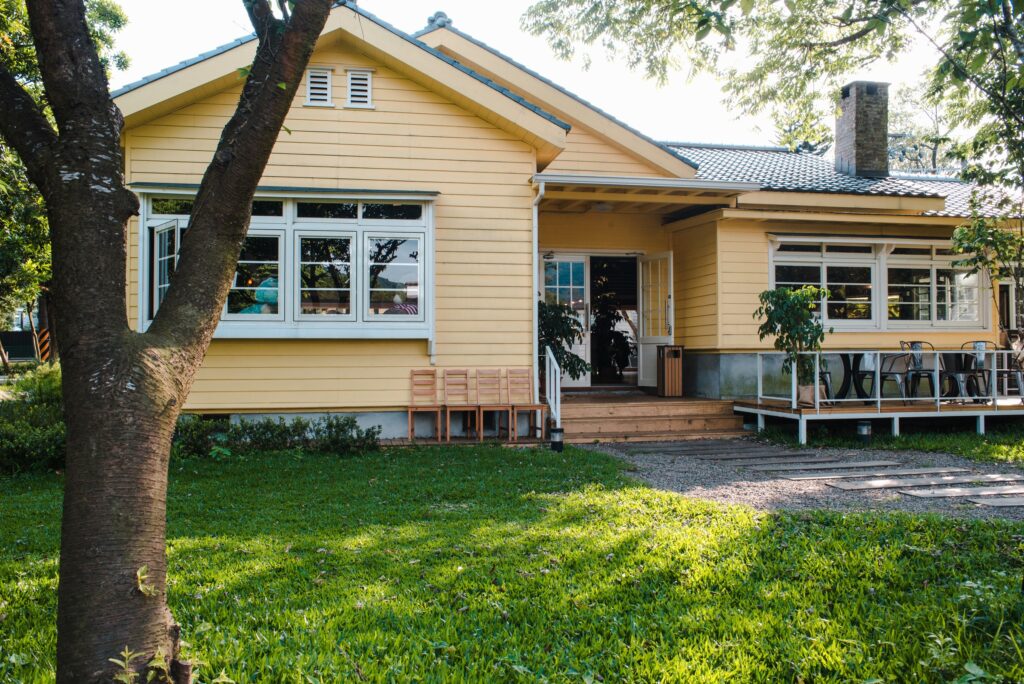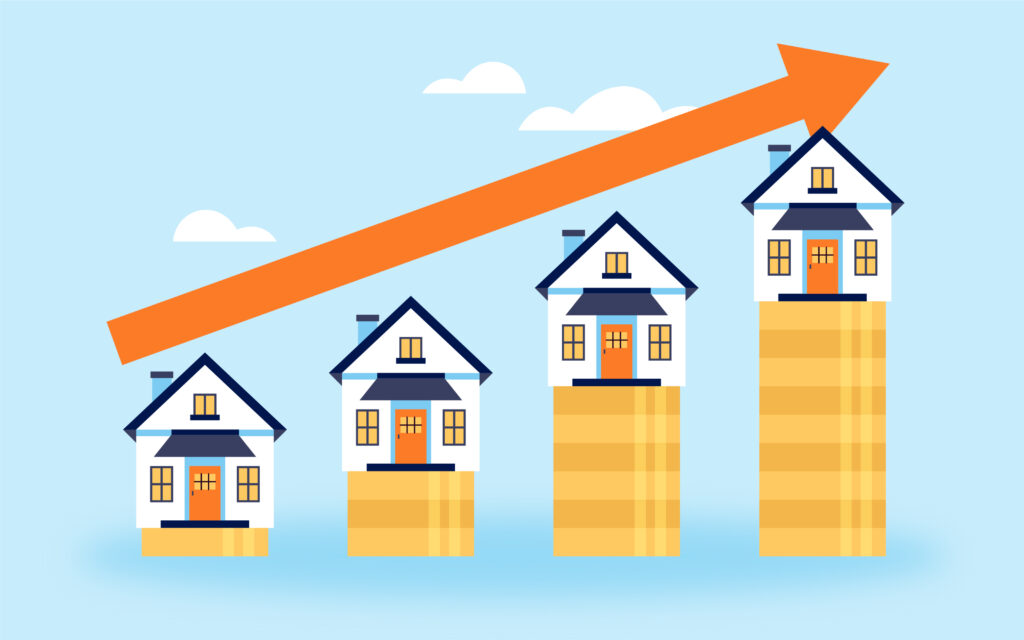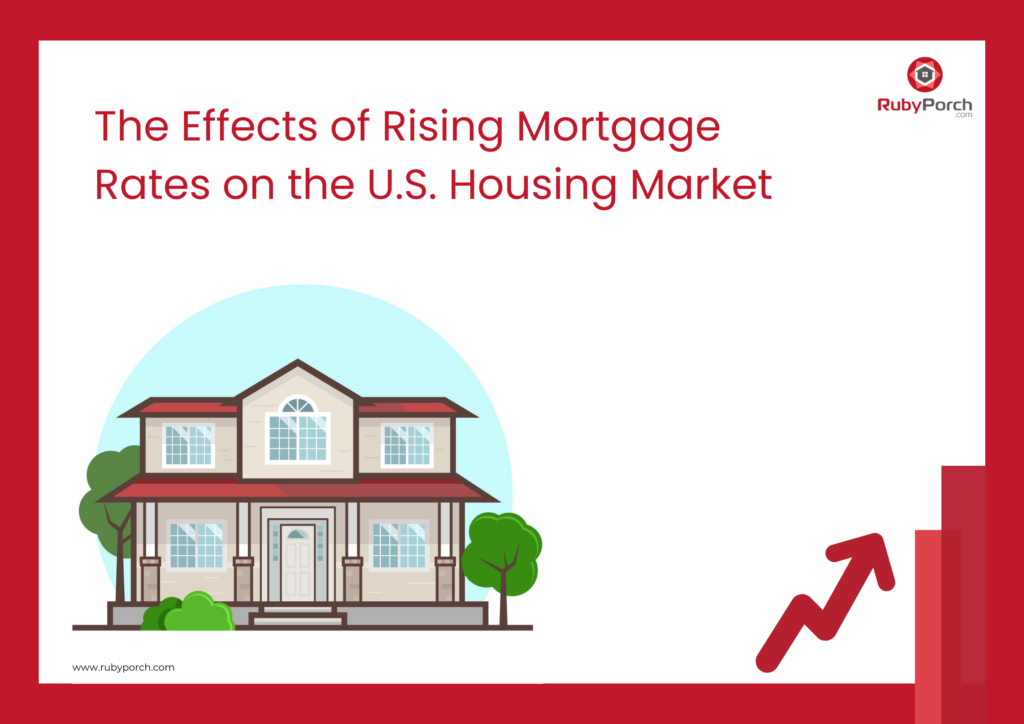Effects of rising mortgage rates on the u.s. housing market have become a significant concern, impacting everything from buyer behavior to home affordability. For homeowners, prospective buyers, and real estate investors, understanding how these rate increases shape the housing market is crucial for making informed decisions. At RubyPorch, we are committed to providing our clients with a clear understanding of market trends and the factors that influence property values. In this blog, we explore the effects of rising mortgage rates on the U.S. housing market and what you need to know as a homeowner or investor.
1. How Rising Mortgage Rates Impact Home Affordability
One of the most immediate effects of rising mortgage rates on the u.s. housing market is the decrease in home affordability. When mortgage rates increase, the cost of borrowing rises, leading to higher monthly payments for homebuyers. This can significantly alter the affordability equation, making it more difficult for buyers to qualify for loans and purchase homes within their desired price range.
Key Impacts on Affordability:
- Higher Monthly Payments: Even a small increase in mortgage rates can add hundreds of dollars to monthly mortgage payments.
- Reduced Purchasing Power: As borrowing costs rise, buyers can afford less house for the same amount of money. For example, if mortgage rates increase from 3% to 4%, a buyer who could previously afford a $400,000 home may now only qualify for a $360,000 home.
This reduction in purchasing power can cause prospective buyers to either lower their price expectations or delay their home purchases altogether. Consequently, demand for homes may decrease, leading to slower sales activity and, in some cases, downward pressure on home prices.
2. Shift in Buyer Demand and Behavior
Rising mortgage rates also lead to shifts in buyer demand and behavior. When rates are low, there is often a surge in demand as buyers rush to take advantage of favorable borrowing conditions. However, as rates increase, the opposite occurs—demand typically drops as borrowing becomes more expensive.
Changing Buyer Behavior:
- Increased Rental Demand: Some prospective buyers may opt to rent instead of buy, increasing demand for rental properties.
- Downsizing or Relocation: Buyers looking to enter the market may opt for smaller homes or consider relocating to areas with lower home prices to stay within budget.
- Longer Decision-Making Process: With higher rates, buyers may take longer to decide on a purchase, weighing the cost implications more carefully.
For sellers, this shift means that homes may stay on the market longer, and they may need to adjust their pricing strategies to accommodate the changing demand.

3. Effect on Home Prices and Market Dynamics
Rising mortgage rates can have a direct impact on home prices. While higher borrowing costs reduce demand, they do not necessarily lead to a drop in home prices in all areas. Instead, the effect on prices often varies depending on other market factors such as housing supply, employment rates, and local economic conditions.
Possible Outcomes:
- Price Stabilization or Decrease: In markets where there is an oversupply of homes or limited demand, rising mortgage rates can lead to price stabilization or even declines.
- Sustained or Rising Prices in Strong Markets: In competitive markets with limited housing inventory and strong economic conditions, prices may continue to rise despite higher mortgage rates.
Understanding these dynamics is essential for both buyers and sellers. For buyers, it may mean waiting for a more favorable time to purchase or exploring alternative financing options. For sellers, it could mean adjusting expectations and being prepared for a longer sales cycle.
4. Impact on Real Estate Investment Strategies
For real estate investors, rising mortgage rates can significantly alter investment strategies. The cost of financing investment properties increases, potentially affecting profitability and cash flow.
Key Considerations for Investors:
- Higher Financing Costs: Investors relying on loans to purchase properties will face higher monthly payments, impacting their overall returns.
- Focus on Cash Flow and Long-Term Holds: In a high-rate environment, investors may prioritize properties with strong cash flow or shift toward long-term holds rather than short-term flips.
- Exploring Creative Financing Options: Investors may also consider alternative financing options, such as adjustable-rate mortgages (ARMs), private loans, or seller financing to mitigate the impact of rising rates.
By adapting their strategies, investors can continue to find opportunities in the market even when traditional financing becomes less favorable.
5. Effect on Housing Supply and New Construction
Rising mortgage rates can also impact housing supply by affecting new construction and development projects. When rates increase, developers face higher borrowing costs, which can lead to delays or cancellations of new projects.
Impact on Housing Supply:
- Slower Pace of Construction: Higher borrowing costs may result in a slower pace of new construction, limiting the availability of new homes in the market.
- Potential Decrease in Housing Supply: In areas where supply is already constrained, fewer new homes can lead to increased competition among buyers and sustained or rising home prices.
For prospective buyers, this can create challenges in finding suitable properties, while for sellers, limited inventory may help maintain property values.

6. Long-Term Implications for the Housing Market
While rising mortgage rates can create short-term challenges, it’s important to consider the long-term implications for the housing market. Historically, higher rates have led to a moderation in home price growth and a rebalancing of supply and demand.
Long-Term Considerations:
- Normalization of Home Prices: As rates rise, price growth typically slows, creating a more balanced market over time.
- Market Stability: A return to more normalized interest rate levels can lead to greater market stability and reduce the risk of housing bubbles.
By understanding these long-term trends, buyers, sellers, and investors can make more informed decisions that align with their financial goals and market conditions.
Commonly Asked Questions (FAQs)
- How do rising mortgage rates affect my ability to buy a home?
Rising mortgage rates increase the cost of borrowing, resulting in higher monthly payments and reduced purchasing power. This means you may need to lower your price expectations or consider alternative financing options. - Will home prices drop if mortgage rates continue to rise?
The impact on home prices varies depending on market conditions. While rising rates can lead to price stabilization or declines in some areas, strong markets with limited supply may still see price growth. - What are some strategies for buying a home in a high-interest-rate environment?
Consider exploring different mortgage options, such as adjustable-rate mortgages (ARMs), or look for homes in areas with lower price points. You may also want to focus on properties with strong long-term value. - Should I wait to buy a home until rates drop?
Timing the market can be challenging. If you find a property that meets your needs and budget, it may be worth considering. Keep in mind that future rate movements are uncertain, and waiting could mean missing out on available opportunities. - How do rising mortgage rates affect real estate investors?
Higher rates increase the cost of financing investment properties, impacting profitability and cash flow. Investors may need to focus on properties with strong cash flow or explore creative financing options.
Conclusion
The effects of rising mortgage rates on the U.S. housing market are profound, influencing everything from buyer behavior to home affordability and investment strategies. While these rate increases present challenges, they also offer opportunities for buyers, sellers, and investors to adapt and make informed decisions.
At RubyPorch, we’re committed to helping our clients navigate these changing market conditions. Whether you’re looking to buy, sell, or invest, our team of experts is here to provide guidance and support. Contact RubyPorch today to learn more about how we can help you succeed in an evolving market.






